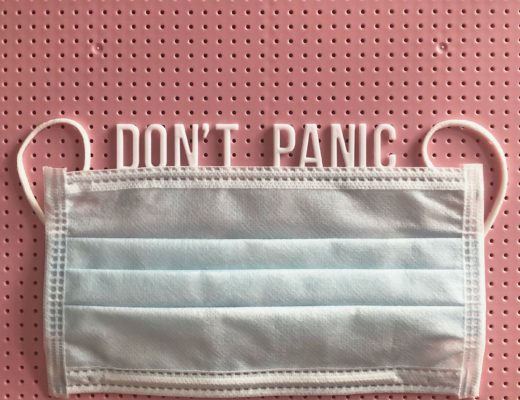One of the many breakthroughs I made in my journey to better mental health was finally having the ability to recognise the onset of a depressive episode. It was surprisingly simple and staring me in the face all along, but when you don’t know what to look for it’s easy to miss the signs.
I now know I’m depressed – or have a low mood – when I lose all interest in the things that usually bring me joy.
Let’s take this blog, and blogging in general, as an example. I started working on this in late August/early September of 2018 full of enthusiasm and creativity. I wanted to write about my journey and share that with others in the hope it would resonate and be a useful resource.
I managed to write six blog posts, buy the domain, and build the site in a month, and yet, almost seven months later and I still had not launched it. Why?
Because travels aside, which always end up eating a lot of my time, depression descended again earlier this year. Thankfully, it didn’t stick around, but it stayed long enough for me to feel the effects. And it threw me off track with most of my goals, the blog launch being one of them.
What’s the point?
I find that when I’m depressed, my prevailing mood and thoughts centre around one theme: what is the point? And when you feel like that, it’s near impossible to feel motivated to do pretty much anything other than the essential things you have to do to be functional every day.
When you don’t feel like doing anything, it’s difficult to motivate yourself to then also try and work towards a goal. How can you convince your brain that yes, actually, there is a point to everything when it’s working against you and convincing you otherwise?
And of course, if you’re anything like me, you love to feel like you’re achieving something, whether that’s learning a new skill, working on your hobbies, or building on your personal development. When I don’t do these things, I end up feeling worse about myself, which just makes the depression even deeper and more enduring.
See the cycle here? Does it sound familiar?
Thinking small
While I was still feeling low, I realised that the depression was stopping me from acting, but that this inaction was making the depression worse. I knew I had to do something to break the cycle.
The answer? Thinking small.
I have lofty ideas of what I want to achieve: I want to publish a book, have my own social enterprise, launch blogs, and learn to teach yoga. And it’s great to have big dreams, but I’ve realised that when I’m depressed, the magnitude of what lies ahead is what makes everything seem even more unmanageable. I’ve also realised I’m a bit of a perfectionist; if I don’t feel everything is perfect, I stop myself from proceeding any further and then end up doing nothing at all.
So, I decided to take the pressure off myself.
I focused on the blog first, as it was so close to being ready. I threw away any expectations of when I should launch it and that it should be perfect. I tried to tame my thoughts, which were running a little something like this: “There are already so many blogs out there, why are you bothering to work on one when people aren’t reading much these days? There’s no point to this.”
This served to make me feel one thing when I thought of the blog: dread. I literally dreaded opening the dashboard and facing up to the posts I had already written. I dreaded reading those posts. I dreaded working on new ones. I dreaded launching it.
Instead I told myself there’s every point: I enjoy writing things that make my soul sing, so that is more than enough of a reason to do this. I told myself that there’s no need for things to be perfect and that I will just sit and write whenever I feel inspired, with no pressure to finish a blog post, no pressure to launch by a certain date.
It worked wonders.
Getting my groove back
Bit by bit, by adopting this attitude my enthusiasm started to return. The first time I worked on the blog again, I think I literally typed 20 words. But it was something. Instead of telling myself that was in some way another failure (like I usually would because I had so little self-compassion), I gave myself a tap on the back and said good job. And sure enough, I returned to it the next day and did a bit more. I did that for a few days with absolutely no pressure.
Before I knew it, I was writing 800+ words like I am right now.
The key to motivating yourself
So, the next time you feel overwhelmed by the thought of working on something you love, take a step back and ask yourself, is this pressure serving me? Or is it just making me run in the opposite direction? And then decide to think small. Think of one small action you can take that will help to get the ball rolling again.
Maybe it’s rolling out your yoga mat and stretching for five minutes instead of doing an hour-long vinyasa class.
Maybe it’s meditating for two minutes instead of 20.
Maybe it’s writing 20 words instead of 2000.
Maybe it’s starting a job application with no aim of finishing it that day.
Maybe it’s updating just one small section of your CV instead of the whole thing.
Maybe it’s drawing for five minutes instead of an hour.
Maybe it’s reading one page instead of a chapter.
The biggest mistake we make is waiting for motivation to strike. Motivation sometimes doesn’t appear at the best of times, so hoping it will hit you like a thunderbolt when you’re depressed or have a low mood is like hoping to win the lottery when you haven’t even bought a ticket.
I now believe that some action is better than no action at all. So, do a little, give yourself a pat on the back, and hopefully this will, in turn, improve your mood and make you more likely to return to it the next day.
I’ve found that just taking that small step forward gets the ball rolling, and before I know it I’ve done so much more than I expected. I hope this works for you too.




